Absa: more bearish (or realistic) than peers? (JSE: ABG)
This credit loss ratio outlook sounds more realistic than the narrative at its peers
Absa has reported results for the year ended December 2022. The difference is that the release comes well after peers Nedbank and Standard Bank, so Absa had more time to digest the GDP impact of load shedding at the end of 2022. Whether or not this is the reason for more bearish credit loss ratio guidance, I can’t be sure.
What I do know is that Absa expects the FY23 credit loss ratio to be at the top end of the through-the-cycle target range of 75 to 100 basis points. That’s significantly higher than the guidance from Nedbank or Standard Bank, which implied a range in the mid-to-high 80s. Interestingly, Absa expects more pressure in the first half of the year than the second half, which I think could be an overly optimistic view on Eskom’s prospects this year.
The share price was trading 5% lower in lunchtime trade, so the market is (quite rightly) focusing on earnings prospects rather than the year that was. Credit must go to Absa for a great year in 2022 that saw revenue climb by 15% and headline earnings increase by 14%, with return on equity up from 14.6% to 15.6%. This would’ve been a much stronger result were it not for exposure to Ghana sovereign instruments that suffered heavy impairments.
Looking geographically, headline earnings in South Africa increased by 17% and Africa fell by 4%.
The bank is still targeting a return on equity of 17%. As the exposure to Ghana has shown, there are so many variables that can impact the achievement of that target. For now, the South African economy is probably the biggest risk to this story, as that is where the growth has been.
AfroCentric profitability takes a knock (JSE: ACT)
There’s no dividend either, thanks to the Department of Health
As AfroCentric prepares for a much deeper relationship with Sanlam, the potential benefits of that infrastructure are clear to see. Operating a relatively small group makes it hard to be efficient, with revenue up by 1.2% but HEPS down by 19%.
There is also no interim dividend, as there has been a significant increase in trade receivables. The National Department of Health owes the company a lot of money.
Both the Services Cluster and the Pharmaceutical Cluster came under pressure, with operating profit down by 7% and 18.4% respectively.
A grand turnaround (JSE: GPL)
Grand Parade Investments has approximately doubled HEPS
In a trading statement that was fairly light on details, Grand Parade Investments indicated that HEPS for the six months to December will be between 95% and 115% higher, which means that earnings approximately doubled.
This has been driven by an improvement in the gaming assets and a decrease in corporate costs and debt, as part of the group’s ongoing efforts to unlock value for shareholders that also saw the group sell its Burger King investment in recent times.
The market cap is R1.56 billion and there isn’t much liquidity in the stock.
MTN’s margins in South Africa are dropping (JSE: MTN)
My recent warnings about this sector are proving to be correct
MTN has 289 million customers across 19 markets. As lovely as that is, it didn’t stop the share price dropping around 9% by lunchtime trade on Monday.
The problem doesn’t lie in revenue growth, which was up 14.4% as reported or 15.3% on a constant currency basis in the year ended December 2022. Of the total revenue base of R196.5 billion, data revenue of R73.7 billion grew by a meaty 30.4%. Surprisingly, FinTech revenue was only up by 8.6% to R17.3 billion.
EBITDA margin is where the story starts to come under pressure, falling by 60 basis points to 43.9%. Still, HEPS increased by 16.9% to R11.54 per share and there were non-operational impacts that had a material impact in this period, causing HEPS to be R1.59 lower than would otherwise have been the case.
A final dividend of R3.30 per share has been declared, 10% higher than the prior year. The dividend yield is modest because (1) MTN still has a lot of debt and (2) the capital intensity in the network is high, which means that a substantial portion of revenue (18.5%) is reinvested in the network.
The knock to the share price is because of the outlook for EBITDA margin in South Africa, which has dropped from a range of 39% – 42% to 37% – 39%. This only tells part of the story, as there is also pressure on free cash flow from elevated capital intensity to upgrade the networks in Africa and respond to the energy crisis locally.
The share price is down over 35% in the past year. Over the same period, Vodacom has lost nearly 20%.
MultiChoice margins are well below guidance (JSE: MCG)
When TVs don’t have electricity, they also don’t have MultiChoice
This is one update that doesn’t surprise me. I’ve been wondering for a while where consumer spending pressures are being felt the hardest, particularly as food and energy costs are hard to avoid. MultiChoice is clearly a place where consumers can cut the cost and save that money, especially when the TV doesn’t work most evenings anyway thanks to load shedding.
Sure enough, MultiChoice’s FY23 trading margin in South Africa is expected to be 23% to 28%, which is well below previous market guidance of 28% to 30%. In Rest of Africa, solid subscriber growth (especially in Nigeria) means that the business is due to return to trading profitability this year. The problem in that part of the business is that MultiChoice struggles to bring the profits home.
There isn’t much good news here, but at least the company expects to beat its FY23 cost savings target. There’s also a hedging policy in place that works well in a weaker ZAR environment.
With an ongoing shift to streaming by higher income clients and pressure on advertising spend for TV as a medium, I don’t think MultiChoice is going to thrill shareholders in the short term.
Pan African Resources completes the Mintails funding (JSE: PAN)
RMB is putting another R400 million into the deal to get it across the line
It’s been a busy few months for Pan African Resources, with the company working to put together the R2.5 billion required for the Mintails Project. The deal has been fully covered by debt, including R800 million under the Domestic Medium Term Note programme, R1.3 billion in senior debt from RMB and now another R400 million from RMB as well.
The R400 million tranche is structured based on a sale of 3,617kg of gold over 24 months at $1,909/ounce. This is obviously a really specialised funding transaction that requires a deep understanding of mining.
For shareholders, the big win here is that the full funding package was achieved without any dilution to shareholders. With a payback period of three and a half years, the market celebrated this news with a rally of 10.6%, although some of this was also due to a positive day for the gold price as the US panicked about contagion from Silicon Valley Bank.
Sibanye-Stillwater just keeps getting shafted (JSE: SSW)
No, really – there’s a shaft that’s been damaged
Mining really isn’t a joke. If it’s not a flood, then it’s a shaft damaged during non-routine maintenance. Either way, Sibanye-Stillwater has reported more challenges at the Stillwater operations in the US.
Access to the deeper levels of the mine has been impacted by structural damage to the vertical shaft, leading to a suspension of production below 50 level for approximately 4 weeks.
This will lead to a production impact of between 25,000 and 30,000 ounces for the year.
Betting on Sun International would’ve worked out (JSE: SUI)
The share price is up more than 46% over the past year
After a solid first half in 2022, the second half of the year saw an even better performance by Sun International as both locals and tourists took advantage of the post-pandemic reality to get out there and have fun. Sun International is literally in the business of selling fun, something that was in short supply under Covid restrictions.
The fun is back and so are the share price returns, with investors having enjoyed a run of 46% over the past year. The numbers support that, with a ten-fold increase in headline earnings!
The urban casinos segment recovered sharply, with EBITDA up 71% and EBITDA margin of 36.4%, up 200 basis points on 2019 levels. The Sun Slots business experienced some margin pressure thanks to load shedding but still did well, with income up 20% and EBITDA up 17%. SunBet is an early stage business that is growing strongly across key metrics, with many players competing in the online betting and gaming space.
Finally, the resorts and hotels business posted EBITDA of R450 million, well up on R300 million in the 2019 financial year. Adjusted EBITDA margin of 17.5% is also a material jump from the pre-pandemic level of 11.7% in 2019.
It’s also interesting to note diesel costs of between R12 million and R14 million a month, with 20% of the cost being offset by electricity savings. In other words, generators cost 5x as much to run as getting power from Eskom.
Debt is down from R7.1 billion to R6.6 billion, of which R5.9 billion sits in South Africa. The group is targeting a 2x net debt to EBITDA level going forward and is aiming to pay out 75% of headline earnings as a dividend, which suggests that management will be taking a conservative approach going forward with capital allocation. Shareholders often like seeing this.
Total dividends for FY22 were 329 cents per share, which puts the group on a 9.5% trailing dividend yield.
The Foschini Group sounds the load shedding alarm (JSE: TFG)
The South African retail industry is being hurt severely by Eskom
It feels like load shedding fits neatly into Ernest Hemingway’s famous “gradually and then suddenly” quote about bankruptcy. We’ve had it for a long time, yet having it this badly means that many businesses just can’t cope anymore.
The Foschini Group (TFG) traded 3.5% lower in afternoon trade on a day that burned bright red for many companies on the local market. The company released updated trading information based on heightened load shedding and there is a clear impact here, although nowhere near as bad as at grocery retailers with a cold chain to maintain.
With the financial year ending soon on 31 March, a strong sales result for the nine months ended December (+12.6% excluding Tapestry Home Brands) is being somewhat blunted. For the 48 weeks ended 25 February, this has dropped to 11.4% because growth in January and February has been low single digits. The problem is that this is the growth run-rate that would be carried into the new financial year if load shedding doesn’t calm down, despite TFG’s substantial investment in backup power solutions that cover 70% of local turnover.
The problem is bigger than just the hours for which there is no electricity. TFG has observed a significant drop in footfall before and after load shedding as well, as it just creates a logistical problem for everybody.
The group estimates that load shedding has cost it R1 billion in turnover in this financial year, with a double-whammy impact on gross margin as inventory levels were too high for the level of demand. There have also been costs of R65 million on diesel, security and maintenance. Cash flow was put under further pressure by capital expenditure to-date of R220 million on backup solutions, with another R30 million expected to take backup to over 80% of turnover. Even then, the backups are only effective up to Stage 4.
Is there any good news? Well, sales in the first week of March showed strong growth again as load shedding calmed down from stage 6. The group also sounds happy with the performance of Tapestry Home Brands and the launch of Bash, TFG’s new online shopping platform. It’s also good to see that the London and Australia businesses are doing well, which helps mitigate some of the impact in South Africa.
It does sound a bit like TFG is making a bigger deal of load shedding that might be the case, particularly given the recent trading numbers. There’s obviously a negative impact but TFG can’t claim to be nearly as badly affected as many other companies.
Transaction Capital ruined my Monday (JSE: TCP)
I thought things would be tough, but not this ugly
If you want to see something that will be bright red on Tuesday morning, look no further than Transaction Capital. In trading update released after the market close on Monday, the company gave investors an entire night to digest a horrible set of numbers.
There have been some major recent director dealings that pointed to this outcome, with significant selling. I expected some ugly numbers and I remain a believer in the long-term fundamentals of the business, so I had put on my hard hat for something ugly to come out. I just didn’t expect it to be this bad and I don’t think many others expected it either.
I will need a hazmat suit on Tuesday morning, not a hard hat!
The Nutun division is the highlight, with the collections business growing earnings at a rate exceeding historical levels. That brings us neatly to the end of the good news.
WeBuyCars expects earnings to be down by up to 20% in the six months to March, with margin pressure as the culprit as the mix of vehicles shifted towards lower-priced cars. I don’t think anyone expected this business to grow off such a high base, so that’s not a shocker. Importantly, penetration of finance and insurance products continues to increase.
We now arrive at SA Taxi, which is basically in the same shape as those taxis a couple of decades ago that had wrenches as steering wheels. The headwinds are now “structural” rather than “cyclical” which is really bad news. In an attempt to try and soften the blow, this is where Transaction Capital stashed the Gomo business, which is the used vehicle F&I platform (that would make a lot more sense structurally in WeBuyCars). They seem to be positioning this new Mobalyz division as an asset-based finance business, though no amount of creative spelling can hide the fact that there is a huge problem inside the group.
The challenge is that the economic profit pool in the minibus taxi industry has shrunk. Fuel prices are high, vehicle prices have increased, the cost of debt is up and commuter volumes have dropped. The taxis have not been able to push through price increases, even when they try hard to set fire to competing services like busses.
It can’t be a good time to work at SA Taxi, with much talk of restructuring the business and cutting costs. This will include the sale of the auto refurbishment and repairs business and related assets, as the attractiveness of lending against Quality Renewed Taxis has taken a knock. The credit impairments are frightening here.
SA Taxi was 70% of group earnings four years ago. It is now the smallest segment, not least of all because the profitability has collapsed. It’s painful to think what might have happened without the acquisition of WeBuyCars.
For the six months to March, EPS and HEPS are expected to drop by more than 20%. I expect it to be a lot worse than that, as 20% is the minimum guidance under JSE rules.
Little Bites:
- Director dealings:
- RBFT Investments (the associate of a director of Salungano (JSE: SLG) that is mopping up shares in the market) has bought an additional R2.5 million worth of shares.
- Orion Minerals (JSE: ORN) asked the Australian Stock Exchange to put an immediate trading halt on the securities as the company is planning to make an announcement regarding a proposed capital raising. This is an Australian rule rather than a JSE rule, which is why you don’t see it very often.
- In an update from the dustbin section of the JSE, the financial director and the auditors of Luxe Holdings (JSE: LUX) have resigned. I have no idea why this company is even still listed
- The CFO of African Equity Empowerment Investments (JSE: AEE) has withdrawn his resignation and will retain his position with the company.




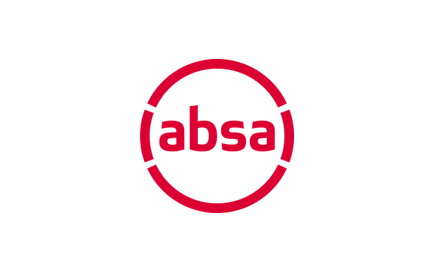
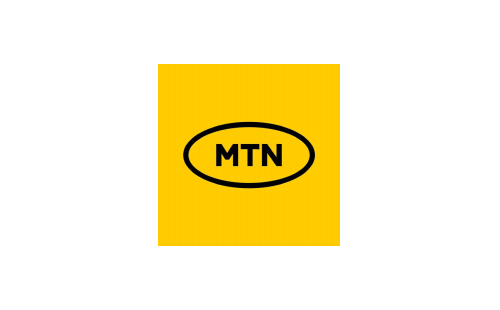



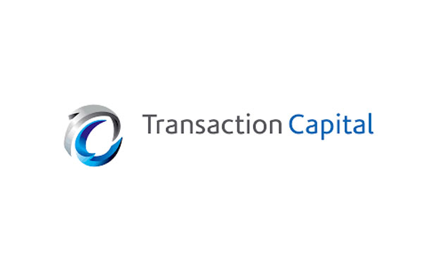
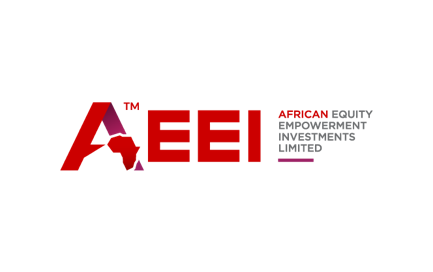
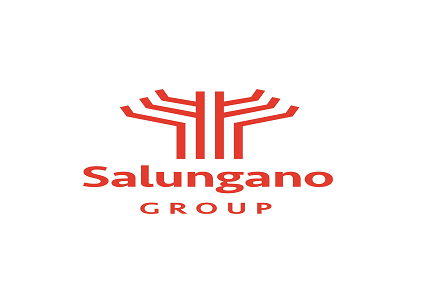

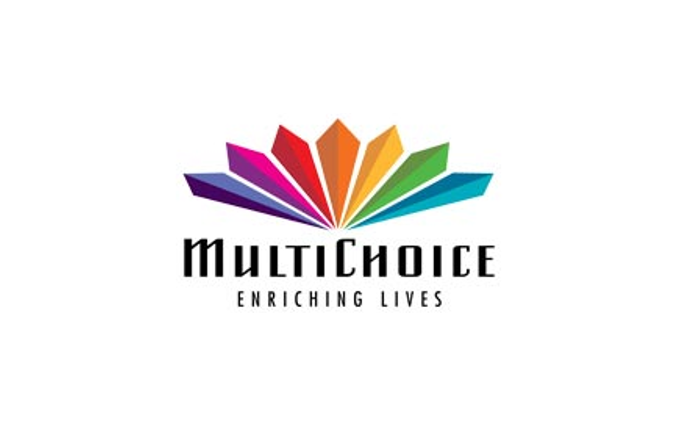
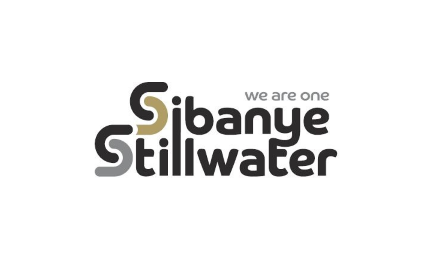


The Transaction story is borderline fraud ……..they propped up the SA Taxi numbers so that they could do the We Buy Cars deal……they would have known the provisions were inadequate a year ago. if not longer.
Directors /insiders sell most of their holdings……shareholders carry the can. Hurwitz is an arrogant con man – should be fired on the spot for this mess.
There’s certainly a lot of anger around this. I personally don’t think there was anything untoward here, as the reasons for the SA Taxi collapse are logical. Honestly, I’m just annoyed with the tax rules that make it intensely costly to sell shares within 3 years of buying them. At high marginal tax rates, it becomes tough to act in response to news like directors selling shares. I don’t think anyone expected it to get obliterated like this.